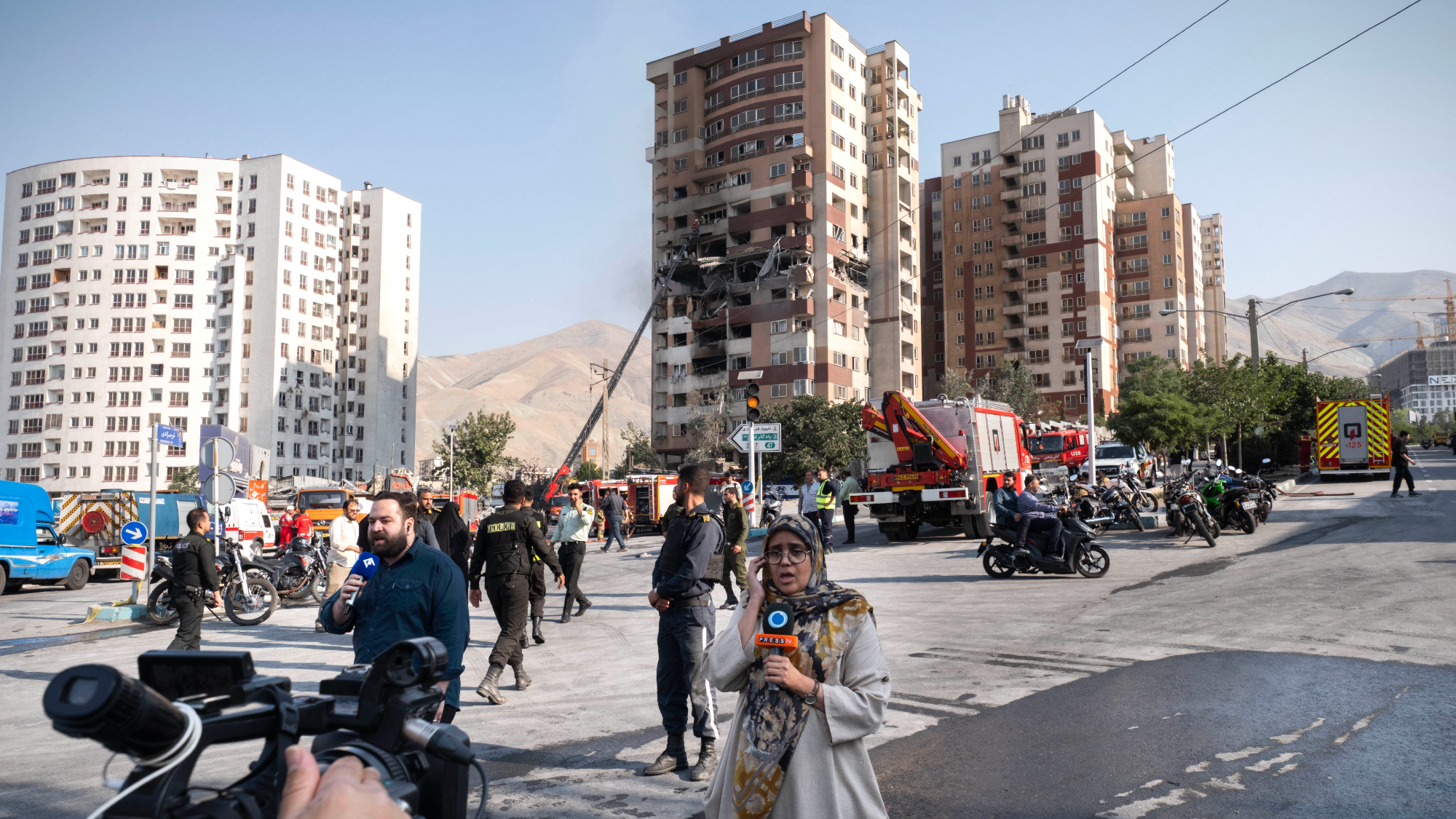Israel strikes Iran, killing military and nuclear chiefs
Israeli officials said the attack was a 'preemptive' strike on Iran's nuclear program


A free daily email with the biggest news stories of the day – and the best features from TheWeek.com
You are now subscribed
Your newsletter sign-up was successful
What happened
Israel attacked Tehran and Iranian nuclear facilities and missile sites early Friday morning, killing the country's three top military leaders and at least two leading nuclear scientists. Israeli officials said the attack, involving 200 warplanes that hit more than 100 targets, was a "preemptive" strike on Iran's nuclear program. Secretary of State Marco Rubio said Israel "took unilateral action" and the U.S. was "not involved in strikes against Iran."
Who said what
Iranian state media confirmed the deaths of Maj. Gen. Mohammad Bagheri, the chief of staff of Iran's armed forces; Gen. Hossein Salami, top commander of the Islamic Revolutionary Guards Corps; and deputy armed forces commander Gen. Gholamali Rashid. Israel's strike dealt a "major blow to Iran's chain of command," The New York Times said, and escalated fears that the "long-simmering tensions between the heavily armed rivals could explode into a full-blown regional war."
A spokesperson for Iran's armed forces said both Israel and the U.S. "must pay a very heavy price" and would "receive a very forceful slap." But the country's supreme leader, Ayatollah Ali Khamenei, did not mention the U.S. in a later statement, saying only that Israel "should anticipate a harsh punishment" for opening its "wicked and blood-stained hand to commit a crime against our beloved country."
The Week
Escape your echo chamber. Get the facts behind the news, plus analysis from multiple perspectives.

Sign up for The Week's Free Newsletters
From our morning news briefing to a weekly Good News Newsletter, get the best of The Week delivered directly to your inbox.
From our morning news briefing to a weekly Good News Newsletter, get the best of The Week delivered directly to your inbox.
"Should Iran retaliate," The Washington Post said, "it was not immediately clear whether the U.S. would assist Israel's defense, including shooting down Iranian drones and missiles as it did twice last year." A U.S. official said that decision was "up to the president." Iran subsequently fired about 100 drones in retaliation, which Israel said it was starting to intercept.
What next?
Israeli Prime Minister Benjamin Netanyahu said in a video statement that "this operation will continue for as many days as it takes" to "roll back the Iranian threat to Israel's very survival." U.S. intelligence does not share Israel's view that Iran is close to building a nuclear weapon, and President Donald Trump said Thursday he had told Netanyahu "I don't want them going in" while his administration was negotiating a nuclear deal with Tehran. Iran said Friday morning it will not participate in U.S. talks scheduled for Sunday.
A free daily email with the biggest news stories of the day – and the best features from TheWeek.com
Peter has worked as a news and culture writer and editor at The Week since the site's launch in 2008. He covers politics, world affairs, religion and cultural currents. His journalism career began as a copy editor at a financial newswire and has included editorial positions at The New York Times Magazine, Facts on File, and Oregon State University.
-
 Why are election experts taking Trump’s midterm threats seriously?
Why are election experts taking Trump’s midterm threats seriously?IN THE SPOTLIGHT As the president muses about polling place deployments and a centralized electoral system aimed at one-party control, lawmakers are taking this administration at its word
-
 ‘Restaurateurs have become millionaires’
‘Restaurateurs have become millionaires’Instant Opinion Opinion, comment and editorials of the day
-
 Earth is rapidly approaching a ‘hothouse’ trajectory of warming
Earth is rapidly approaching a ‘hothouse’ trajectory of warmingThe explainer It may become impossible to fix
-
 Ex-South Korean leader gets life sentence for insurrection
Ex-South Korean leader gets life sentence for insurrectionSpeed Read South Korean President Yoon Suk Yeol was sentenced to life in prison over his declaration of martial law in 2024
-
 Will increasing tensions with Iran boil over into war?
Will increasing tensions with Iran boil over into war?Today’s Big Question President Donald Trump has recently been threatening the country
-
 Rubio boosts Orbán ahead of Hungary election
Rubio boosts Orbán ahead of Hungary electionSpeed Read Far-right nationalist Prime Minister Viktor Orbán is facing a tough re-election fight after many years in power
-
 Key Bangladesh election returns old guard to power
Key Bangladesh election returns old guard to powerSpeed Read The Bangladesh Nationalist Party claimed a decisive victory
-
 US, Russia restart military dialogue as treaty ends
US, Russia restart military dialogue as treaty endsSpeed Read New START was the last remaining nuclear arms treaty between the countries
-
 What happens now that the US-Russia nuclear treaty is expiring?
What happens now that the US-Russia nuclear treaty is expiring?TODAY’S BIG QUESTION Weapons experts worry that the end of the New START treaty marks the beginning of a 21st-century atomic arms race
-
 Iran and US prepare to meet after skirmishes
Iran and US prepare to meet after skirmishesSpeed Read The incident comes amid heightened tensions in the Middle East
-
 Which way will Trump go on Iran?
Which way will Trump go on Iran?Today’s Big Question Diplomatic talks set to be held in Turkey on Friday, but failure to reach an agreement could have ‘terrible’ global ramifications
